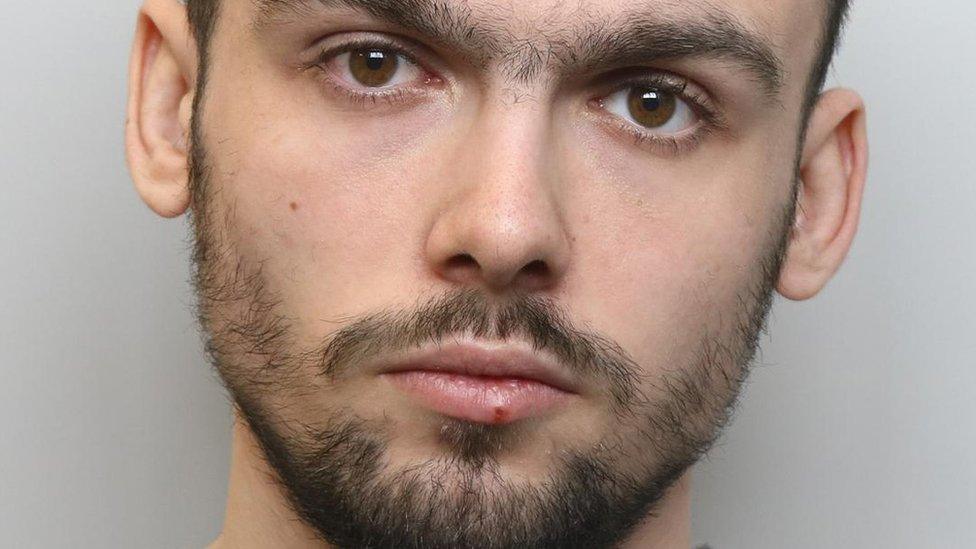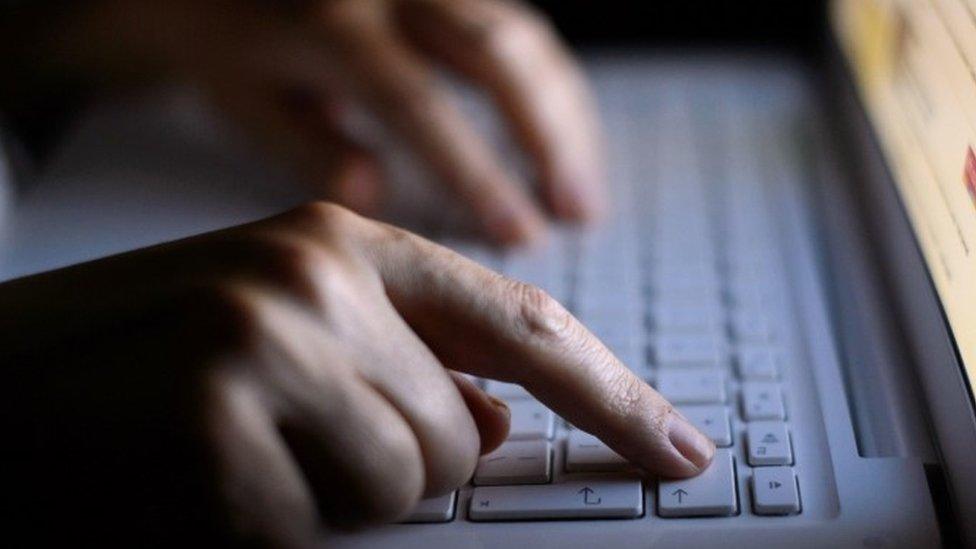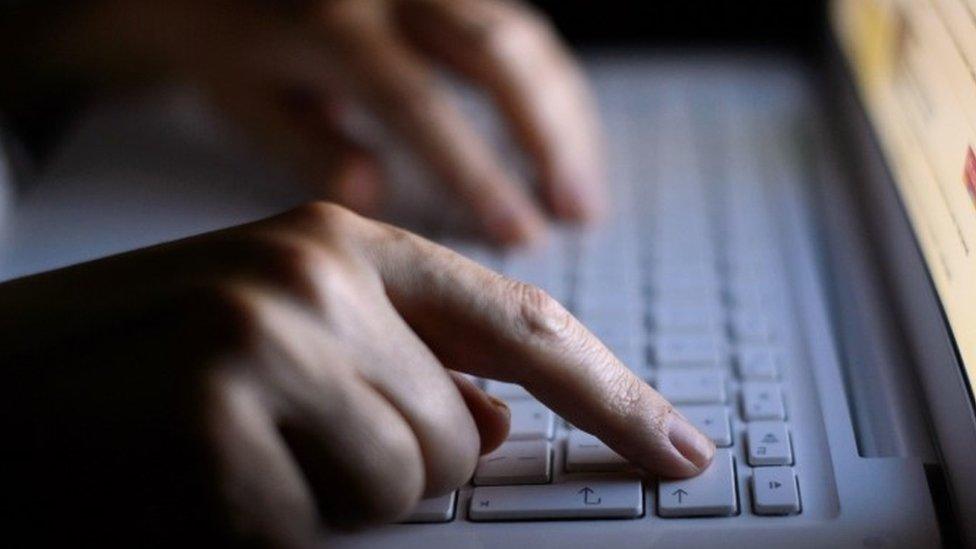Hacker Liam Watts detained over police cyber-attacks
- Published

Liam Watts hacked into Greater Manchester Police and Cheshire Police's websites and made them inaccessible to the public
A man who hacked into two police websites as revenge for being convicted of a bomb hoax has been detained.
Liam Watts, 20, of Chorley, used software to overload Greater Manchester Police's (GMP) website in August 2018 and Cheshire Police's site in March.
He previously pleaded guilty to two counts of unauthorised acts with intent to impair operation of or prevent access to a computer.
Watts was sentenced to 16 months in a young offenders' institution.
Judge Patrick Thompson said the cyber-attacks were "a fundamental attack on the heart of society".
"It is an attack on law and order in this country," he added.
'Lashed out'
The police systems were targeted in a distributed denial of service, or DDoS, attack, which involves flooding a website with extremely high volumes of traffic in an effort to overwhelm it.
Chester Crown Court heard the attack on the GMP site caused "minimal" impact, but the attack on Cheshire Police stopped the 3,000 to 4,000 people who normally visit the site being able to access it.
Watts, of Stratford Road, had been convicted of unauthorised use of a computer in 2016 following a similar attack on his college, the court was told.
He also had a conviction for attempted robbery and in 2017 was convicted of a bomb hoax made eight days after the Manchester Arena terror attack.

Watts boasted about the cyber-attacks on social media, the court heard
Patrick Williamson, defending, said Watts had "very significant difficulties" including ADHD and alcohol-related neuro development disorder.
He said Watts had "lashed out" after he saw the result of a bomb hoax case similar to that for which he was convicted, which resulted in a different sentence.
A five-year restraint order was also imposed.
This restricts Watts's use of the internet unless he agrees to make devices available for inspection and does not delete his internet history.
- Published25 April 2019
